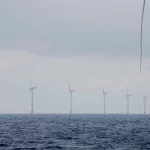This website uses cookies to improve your experience. We'll assume you're ok with this, but you can opt-out if you wish. Read more
Denmark jailed its own spy chief for leaks
Denmark jailed its own spy chief for leaks
In recent years, Denmark has ranked as the least corrupt country in the world. In a strange case that hasn’t been resolved yet, some think the country has gone too far in demonstrating its rectitude. It put the head of its own Defense Intelligence Service in custody (DK) for 70 days under mysterious circumstances.

DDIS Chief Lars Findsen. Photo: liselotte sabroe © Scanpix Denmark.
In August 2020, the Oversight Board for Denmark’s three intelligence agencies suspected irregularities in confidential communications between DDIS and the US National Security Agency. Apparently the NSA had access to undersea cables that enabled it to eavesdrop on communications between European officials and politicians. Three employees at DDIS were suspended, only to be cleared a year later after an investigation by a parliamentary committee.
Leaks to the media
Around the same time as the investigation concluded, four other current and former DDIS officers were arrested and charged with “disseminating highly classified information from the intelligence services.” The charges fell under penal code 109 and carry a sentence of up to ten years in prison. A constitutional inquiry was held behind closed doors. According to information leaked to obtained by the Danish Broadcasting Corporation (DR), at issue were leaks to the Danish media.
The intelligence agencies held meetings with media executives warning them not to run stories based on the leaked information. The material concerned three cases. One involved threat assessments regarding Danish children in Syrian prison camps, which the daily Ekstra Bladet had reported that the administration had kept secret for a year. The second story concerned Ahmed Samsam, who DR said was an agent for Danish intelligence services. Samsam claimed that he had been abandoned by Denmark when he was charged in a terrorism case in Spain. The third regarded the collaboration with the NSA investigated earlier.
Mystery prisoner revealed
Two of the four intelligence employees were remanded in custody, one of them only briefly. In January, the names of those charged were released, and the one officer who remained imprisoned turned out to be DDIS’s spymaster himself, Lars Findsen. According to the rules of the constitutional inquiry, the specific charges against him couldn’t be released. “I am not guilty and I want the charges made public,” said Findsen. “This is insane.”
Soon afterward, former Defense Minister Claus Hjort Frederiksen was also charged with the same violation. According to Hjort Frederiksen, his crime was “expressing myself as a Member of Parliament about a political case.” Again, the precise cause of the charge is unknown, but it is likely to involve interviews in September 2020 in which Hjort Frederiksen said he could neither confirm nor disconfirm information about collaboration between DDIS and the NSA on eavesdropping on undersea cables.
The perils of dirty laundry
The administration’s handling of the case has been criticized by several former officials, including the former head of another intelligence agency, former Prime Minister Anders Fogh Rasmussen, and former Foreign Minister Uffe Ellemann Jensen. They say that this bizarre proceeding will damage the intelligence agencies’ credibility and opportunities for collaboration with their international counterparts.
In February Findsen protested his continued incarceration at another hearing. He was released from custody because he was no longer considered to be a threat to state security or to the further prosecution of the case.
Tradecraft at the dinner table
This month, it was discovered that, in the period before Findsen’s arrest, the Danish Security and Intelligence Service had bugged his home (DK). This is considered a very intrusive step, to be approved by a judge only in critical cases. If Findsen had discussed with his family the circumstances of the original suspension of DDIS employees in 2020, for example, he might be just as guilty as if he had shared classified information with the media or others.
According to court records, Findsen is charged with leaking state secrets on nine occasions. But the specific information that he allegedly divulged has still not been disclosed. Justice Minister Nick Hækkerup wouldn’t say whether he knew of the surveillance of Findsen’s home. The East Jutland Police wouldn’t say whether the three others were still being charged. None of the suspects has been indicted yet.


